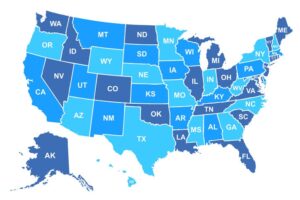How do I call Medicare?
How do I call Medicare?
Call 1-800-MEDICARE For questions about your claims or other personal Medicare information, log into (or create) your secure Medicare account, or call us at 1-800-MEDICARE (1-800-633-4227). TTY users can call 1-877-486-2048.
What is a good deductible for health insurance?
The IRS has guidelines about high deductibles and out-of-pocket maximums. An HDHP should have a deductible of at least $1,400 for an individual and $2,800 for a family plan. People usually opt for an HDHP alongside a Health Savings Account (HSA). Mar 10, 2022
What does it mean to have a $1000 deductible on your health insurance?
A deductible is a set amount you have to pay every year toward your medical bills before your insurance company starts paying. It varies by plan and some plans don’t have a deductible. Your plan has a $1,000 deductible. That means you pay your own medical bills up to $1,000 for the year.
Is it better to have a copay or deductible?
Copays are a fixed fee you pay when you receive covered care like an office visit or pick up prescription drugs. A deductible is the amount of money you must pay out-of-pocket toward covered benefits before your health insurance company starts paying. In most cases your copay will not go toward your deductible. Jan 21, 2022
How do insurance deductibles work?
A deductible is the amount you pay for health care services before your health insurance begins to pay. How it works: If your plan’s deductible is $1,500, you’ll pay 100 percent of eligible health care expenses until the bills total $1,500. After that, you share the cost with your plan by paying coinsurance.
Is a $500 deductible Good for health insurance?
Choosing a $500 deductible is good for people who are getting by and have at least some money in the bank – either sitting in an emergency fund or saved up for something else. The benefit of choosing a higher deductible is that your insurance policy costs less. Dec 17, 2020
Is it better to have a $500 deductible or $1000?
A $1,000 deductible is better than a $500 deductible if you can afford the increased out-of-pocket cost in the event of an accident, because a higher deductible means you’ll pay lower premiums. Choosing an insurance deductible depends on the size of your emergency fund and how much you can afford for monthly premiums. Jan 26, 2022
Is a $0 deductible good?
Is a zero-deductible plan good? A plan without a deductible usually provides good coverage and is a smart choice for those who expect to need expensive medical care or ongoing medical treatment. Choosing health insurance with no deductible usually means paying higher monthly costs. Feb 14, 2022
Is a 4000 deductible high?
As long as you are healthy, it is usually a more affordable option for health care coverage. However, this trade-off must be weighed carefully. For some HDHPs, deductibles may be as high as $4,000 for an individual. If you do suffer an accident, you will likely face a large bill. Jun 24, 2019
What is a 5000 dollar deductible?
The $5,000 deductible option means your health plan benefits kick in after you pay $5,000 out of your own pocket. You can: (1) choose your coinsurance, (2) choose your office visit copay, and (3) choose your prescription drug benefits to create a plan just for you or for your whole family.
What does 20 coinsurance mean after deductible?
The percentage of costs of a covered health care service you pay (20%, for example) after you’ve paid your deductible. Let’s say your health insurance plan’s allowed amount for an office visit is $100 and your coinsurance is 20%. If you’ve paid your deductible: You pay 20% of $100, or $20.
What does 80% coinsurance mean?
An eighty- percent co-pay (or coinsurance) clause in health insurance means the insurance company pays 80% of the bill. A $1,000 doctor’s bill would be paid at 80%, or $800. Apr 8, 2013
What is the difference between deductible and out-of-pocket?
Essentially, a deductible is the cost a policyholder pays on health care before the insurance plan starts covering any expenses, whereas an out-of-pocket maximum is the amount a policyholder must spend on eligible healthcare expenses through copays, coinsurance, or deductibles before the insurance starts covering all … May 7, 2020
What happens if you don’t meet your deductible?
Many health plans don’t pay benefits until your medical bills reach a specified amount, called a deductible. This could be $1,000, $2,000 or even more, depending on the type of plan you choose. If you don’t meet the minimum, your insurance won’t pay toward expenses subject to the deductible.
What is the purpose of deductibles?
A deductible mitigates that risk because the policyholder is responsible for a portion of the costs. In effect, deductibles serve to align the interests of the insurer and the insured so that both parties seek to mitigate the risk of catastrophic loss.


